Animal Tarock by J. G. Pichler
Baroque tarock cards from the late 18th century.
The work of the card maker Johan Georg Pichler from Linz is documented by the Talon.cc database between 1767-1799. The revenue stamp shown on the heart card No. 1 was used in Upper Austria (Österreich ob der Enns) between 1772-1803, Linz customs office. From the diary entries of W.A. Mozart (W. Mayr / R. Sedlaczek - Das Grosse Tarock Buch) it follows that in 1783 he played tarock at home. This is what the playing material he used could look like.
The complete deck of 78 cards measuring 57 x 104 mm is made by careful engraving with stencil coloring. The manufacturer's identification is only on the knave (jack) of Clubs. Sküs/Excuse (tarock without a number) depicts a flutist, Pagat (tarock no. I) is designed as Hanswurst. The design of the other tarock cards shows various common, exotic and mythological animals. The reverse side is designed with a delicate blue pattern.
The cards are designed as two-headed, but the creators still fail to keep the composition identical on both sides, especially in the tarock cards. This design error is probably the most obvious on card no. XVIII.
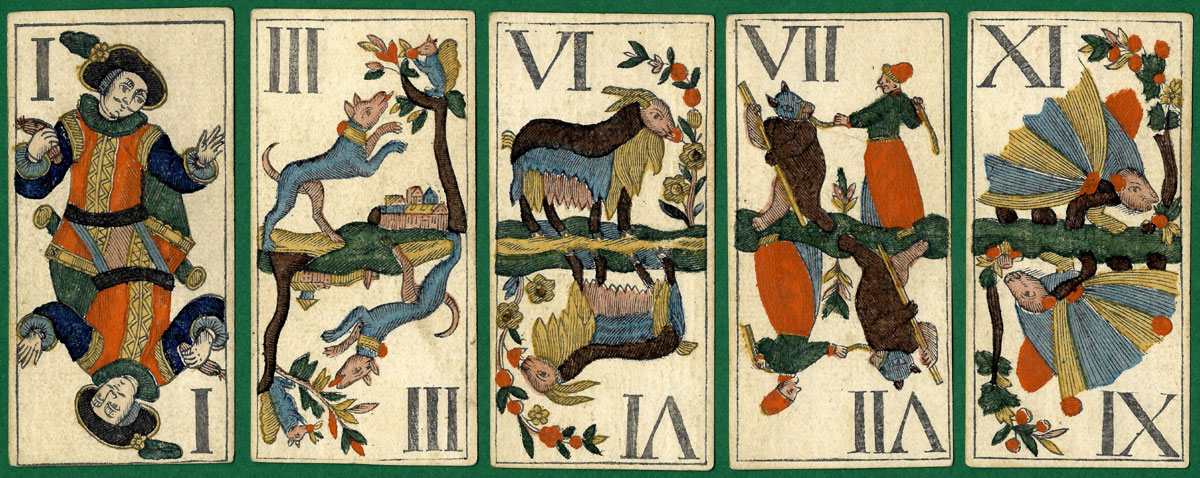
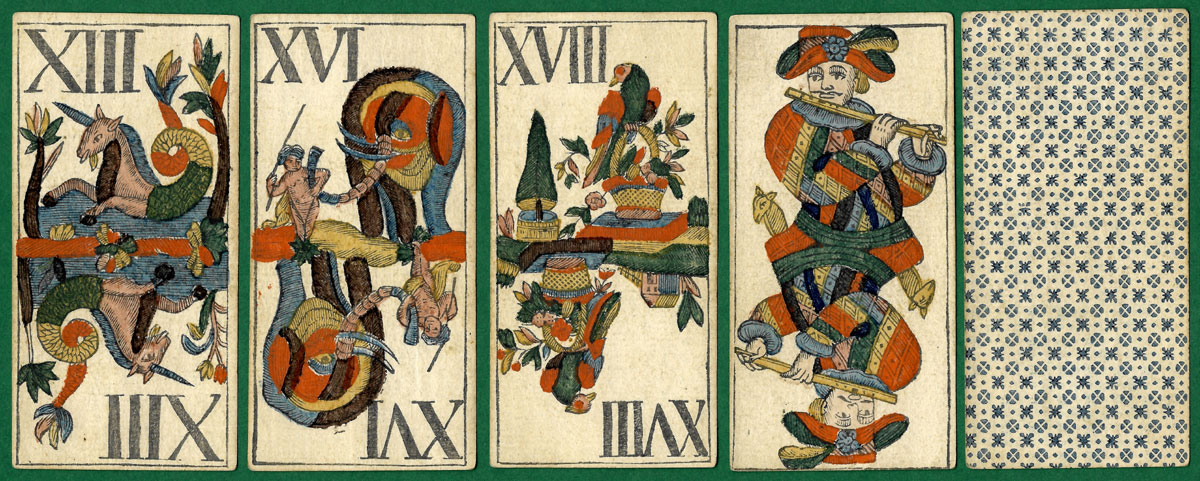
Above: Animal Tarock cards by J. G. Pichler, Linz, late 18th century. 78 cards.
The most common deck of Austrian tarock today (codification IPCS #14- #16) was created around 1815. Already in Pichler's design of the court cards, certain common features can be identified. The king of diamonds, designed in profile with a turban and a scepter decorated with moons, foreshadows the current design of the king of spades. The attributes of the queens of hearts, spades and clubs (flowers, fans) also correspond to today's.
Acknowledgements & References
Thanks to Carsten Mintert for the tax stamp consultation.
• Austrian Playing Card Society : Talon►
• Wikipedia : Hanswurst►
By Marek Brejcha
Czech Republic • Member since June 13, 2024 • Contact
My relationship with cards grew from playing to collecting and transformed into publishing as well. I am part of the team at Counter Clockwise, a small company that publishes traditional card games.

Leave a Reply
Your Name
Just nowRelated Articles
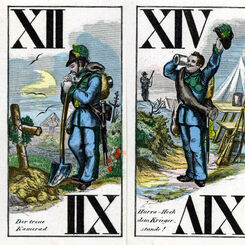
Militar-Tarock No. 38
Non-standard tarock cards combining theatrical and military themes by Joseph Glanz.

Julius Berndl and his Austrian tarock
Josef Glanz's Tarock: a classic deck with artistic innovation by Julius Berndl.
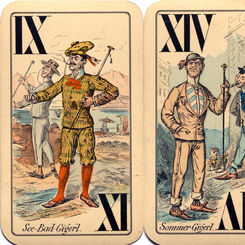
Gigerl-Tarock by Joseph Glanz
Urban Dandy caricature deck from 19th century Vienna designed by Julius Berndl.
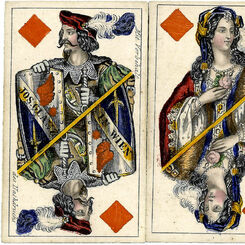
Patience by Joseph Glanz
A refined and distinctly European Patience pack by Joseph Glanz from Austria.
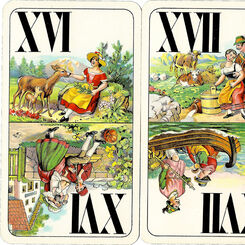
Tarock Nr. 71 by Ferd. Piatnik & Söhne
Special tarock deck for the Tyrolean game Droggn.

Luditz Pattern by Georg Geiselreiter
The discovery of 2024 changes the current state of knowledge of the history of this pattern.
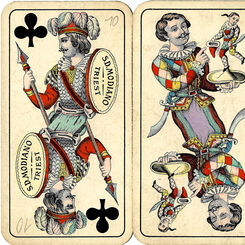
Austrian Tarock by S.D. Modiano
Modiano’s Austrian Tarock with country scenes has been in production for over 100 years.

Tarock Cards by NIL Spielkartenfabrik
A deck of tarock cards from the eastern end of the ending Austro-Hungarian Empire.

Whist by Ditha Moser
Ditha Moser created this minimalist Whist deck in 1905, in the style of the Vienna Secession art mov...
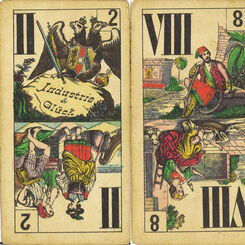
Johann Nejedly Tarok Cards
Johann Nejedly, a 19th-century Viennese card maker, produced Tarock cards featuring modern scenes th...

Joseph Sürch, Engraver
Joseph Sürch, a prominent Viennese engraver, made significant contributions to card sheet engraving ...
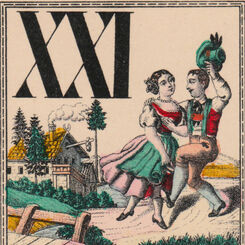
Tarok c.1900
Piatnik & Söhne “Industrie und Glück” Tarok c.1905-1910.
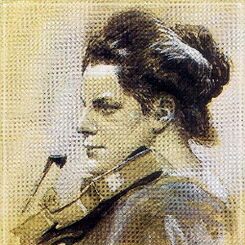
Jugendstil Tarock
‘Jugendstil Tarock’ was designed by Ditha Moser and first published by Albert Berger and Josef Glanz...
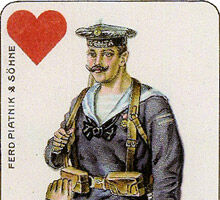
Soldaten Tarock
Piatnik was known for their magnificent quality of chromo-lithographic printing, and this facsimile,...
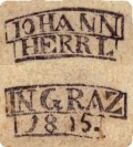
Mythological Tarock by Johann Herrl
French-suited Tarock deck made by Johann Herrl in Graz 1815.
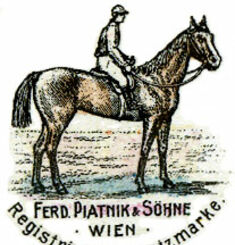
Piatnik Tarock
Deck of "Industrie und Glück" or "Rural Scenes" tarock cards manufactured by Ferd Piatnik & Söhne, V...
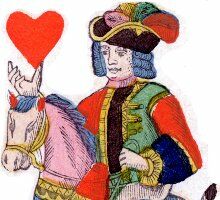
Tarock Cards
The earliest Tarot decks originated in Italy in the fifteenth century, with Italian suit symbols. Ho...
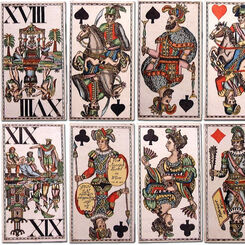
Estel Tarok
J. Estel Tarok, 1820.
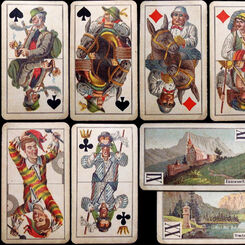
Pittner Tarok
Ferd Pittner, Tarok Cards
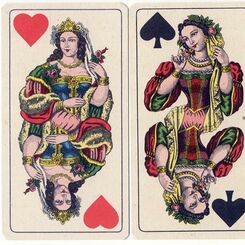
Adametz, Vienna
Cards from a 54-card "Austrian Tarock" or "Industrie und Glück Tarock" pack made by Franz Adametz of...
Most Popular
Our top articles from the past 60 days


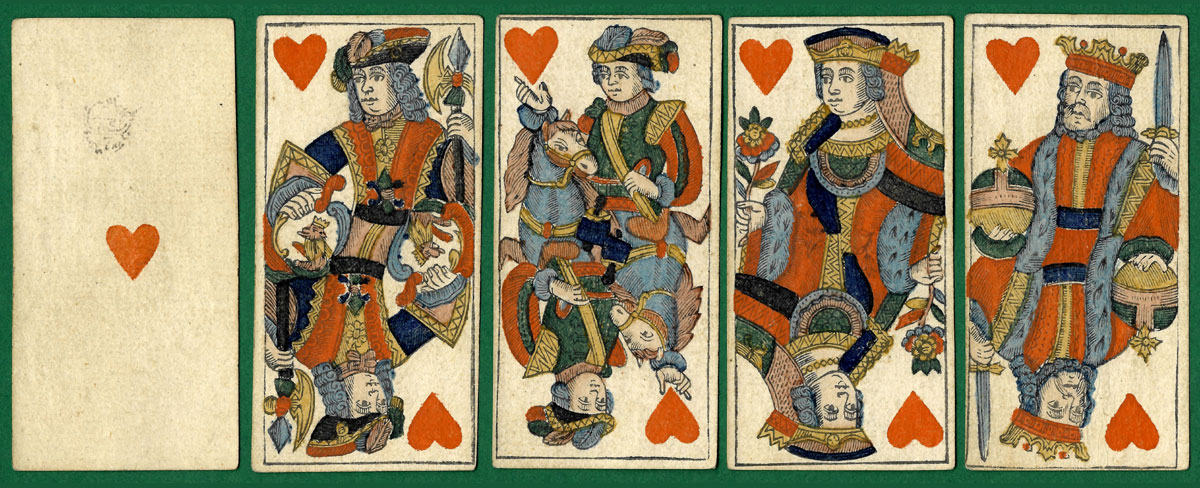
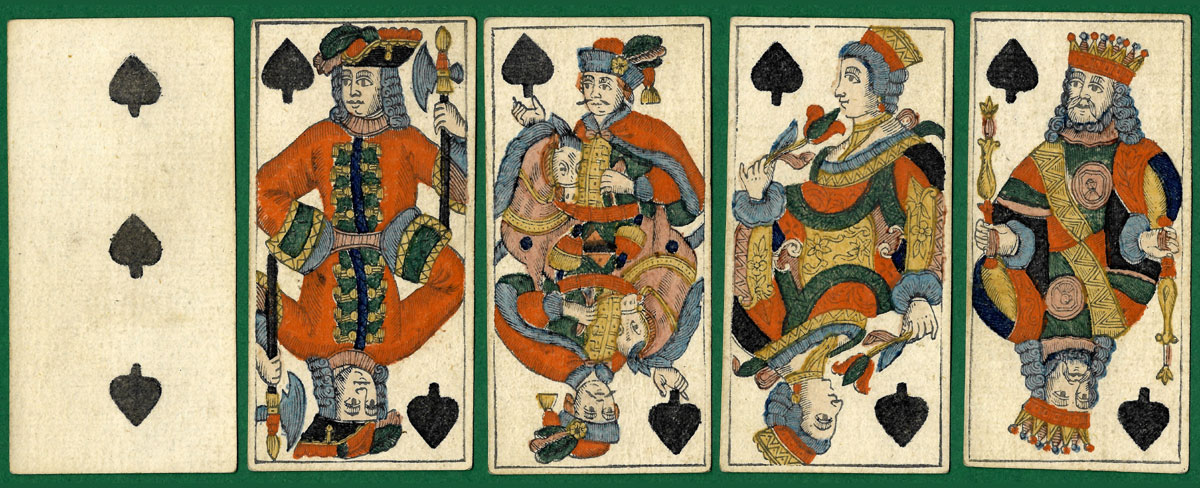
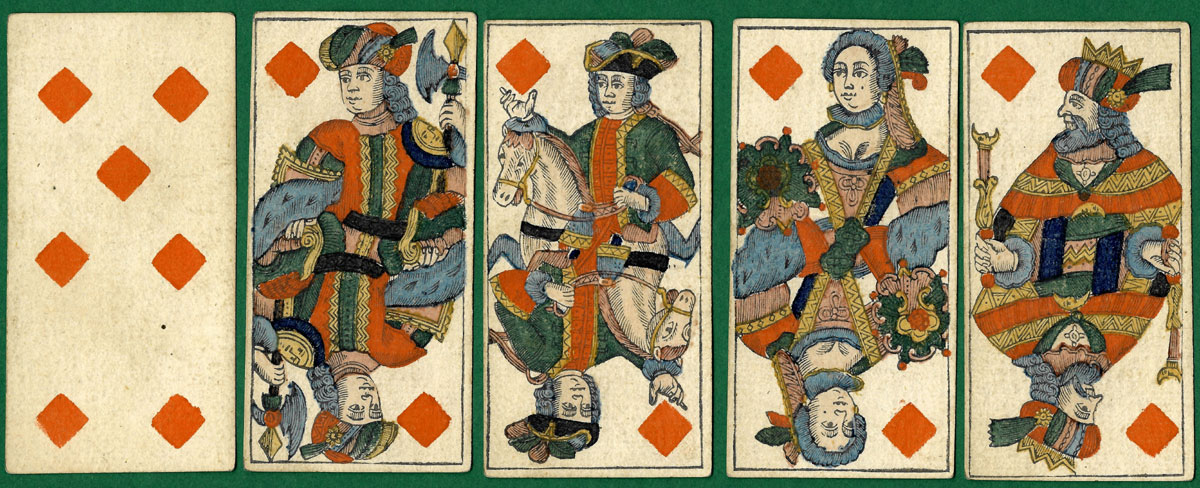
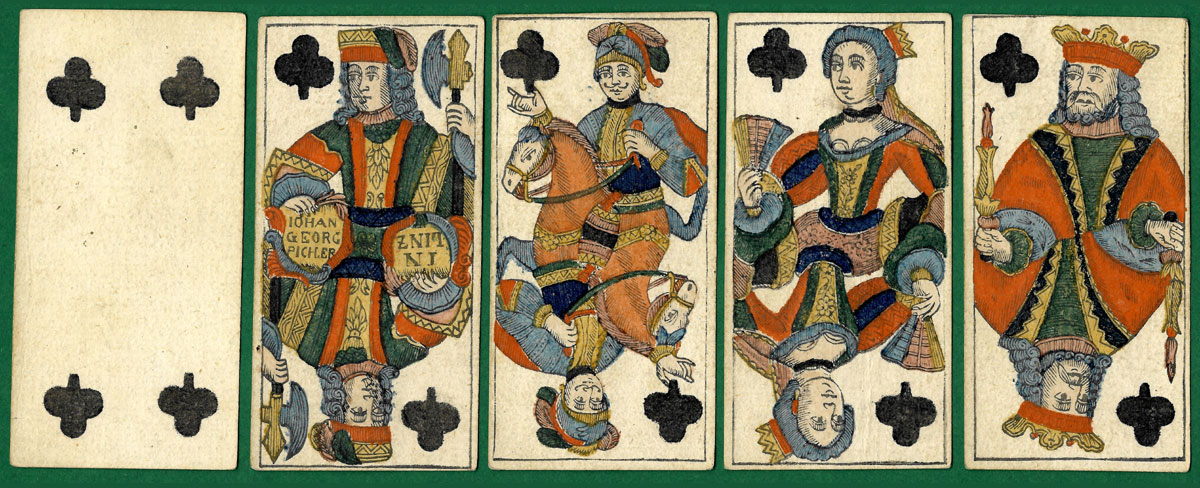
 Your comment here. Your comment here. Your comment here. Your comment here. Your comment here. Your comment here. Your comment here. Your comment here. Your comment here. Your comment here. Your comment here. Your comment here. Your comment here. Your comment here. Your comment here. Your comment here. Your comment here. Your comment here. Your comment here. Your comment here. Your comment here. Your comment here. Your comment here. Your comment here. Your comment here. Your comment here. Your comment here. Your comment here. Your comment here. Your comment here. Your comment here. Your comment here.
Your comment here. Your comment here. Your comment here. Your comment here. Your comment here. Your comment here. Your comment here. Your comment here. Your comment here. Your comment here. Your comment here. Your comment here. Your comment here. Your comment here. Your comment here. Your comment here. Your comment here. Your comment here. Your comment here. Your comment here. Your comment here. Your comment here. Your comment here. Your comment here. Your comment here. Your comment here. Your comment here. Your comment here. Your comment here. Your comment here. Your comment here. Your comment here.




















